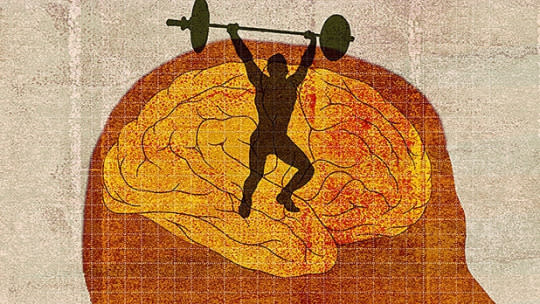Want to Keep Your Brain Sharp? You Need to Challenge It

(Photo Courtesy of Getty Images)
For years, Sudoku puzzles were darlings of brain health, recommended to stave off those unsettling moments when you walk into a room and forget why you’re there. Then, more recent studies suggested that cardiovascular exercise such as running or gardening were actually more important in preventing cognitive decline, which can set in as early as your late 30s. The latest research, however, suggests a swing back to the cerebral and that more intense mental effort might be required to maintain a healthy, active brain.
Related: The Complete Guide to a Healthier Brain
How exactly to boost brain health isn’t well understood. Researchers in this study, published in Restorative Neurology and Neuroscience, tried to mimic the results of a 2014 review of animal studies that concluded longer and more demanding learning periods appear to preserve fragile neurons, enhancing cognitive ability.
Wanting to test activities that were noncompetitive, complex, and interesting enough so study participants wouldn’t drop out of the study, the researchers measured brain modulation in people learning quilting or digital photography. Brain modulation is the ability to tune the activity of the brain to the demands of a task, says study senior author Denise Park.
Related: 11 Things You Probably Didn’t Know About Your Brain
“Interestingly, older adults have difficulty modulating brain activity and seem to show a high level of activity whether the task is easy or hard,” she says. “It’s somewhat like keeping your foot on the gas and going at a high speed whether the speed limit is fast or slow."
After three and a half months of learning progressively difficult skills for 15 hours a week, 39 study participants and a low-challenge placebo group who listened to music or watched classic movies underwent cognitive tests and brain scans to measure cognitive activity. Subjects were given lists of words to recall to test memory, and they also measured how fast people could judge pairs of digit strings as the same or different and solved complex visuospatial problems, Park says.
Related: 15 Healthy Habits You Should Already Have
The high-challenge group showed increased neural efficiency, meaning better memory and improved brain modulation in the areas related to attention and semantic processing (deep thinking related to memory recall). These changes weren’t just improvements, but mimic how young people’s brains work, the researchers wrote, and some of the brain changes were maintained when subjects were retested a year later.
Their findings are the first to show that challenging leisure activities can actually change brain function, but Park points out that their study was on the small side and more research is needed to better understand how to preserve or restore youthful, healthy cognition.
By Virginia Pelley
More from Men’s Journal:
